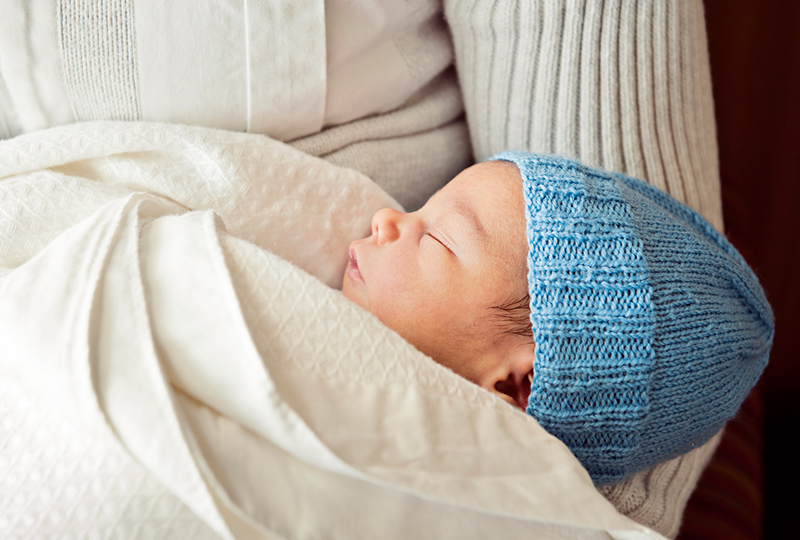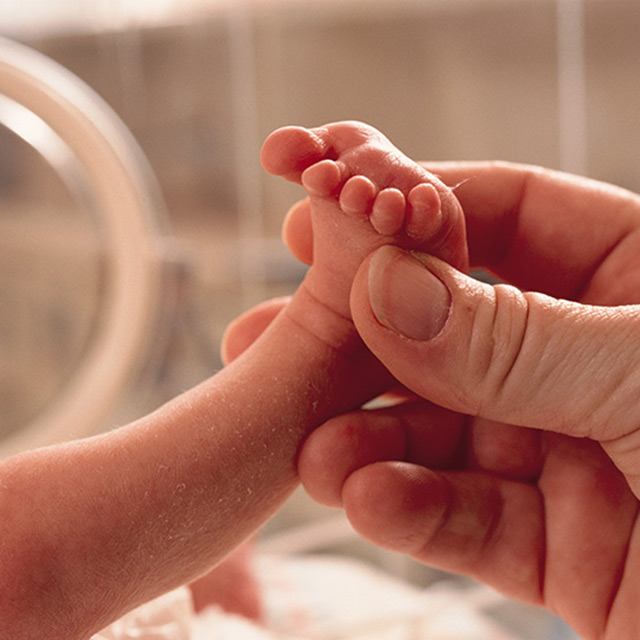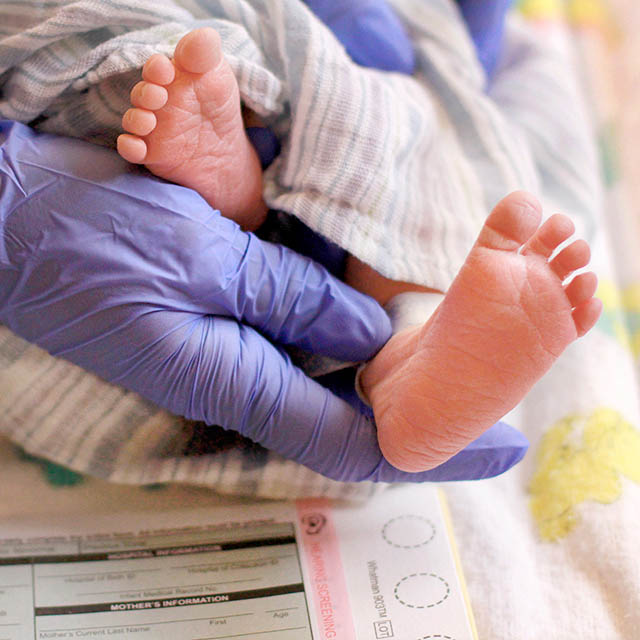The end of the year is festive but germy. How to protect your new baby, and yourself.
Congratulations on the newest member of your family!
Babies are adorable and so precious. If you have a newborn, you’ve probably already heard from family and friends who want to visit, meet the new arrival and shower the baby with cuddles and kisses.
This is not surprising. But if your baby was born late in the year, their birth coincided with the beginning of cold and flu season – which means all that loving from family also might expose the newbie to germs that their very young immune system is not ready to fight off. Newborns have greater risk than older children of developing complications from various illnesses, including the flu.
How to manage the holiday season’s social events with friends and family while keeping a new baby healthy? Here are helpful strategies.
Get vaccinated
Babies younger than six months are too young for some vaccinations. Parents, family, friends and caregivers should get vaccinated against the flu and whooping cough (pertussis). If the people around the baby are immunized against these illnesses, it’s less likely that the baby will be exposed to these germs that can make them very sick.
Pregnant women should get a flu shot, because the baby acquires some of the mother’s antibodies, which gives baby some immunity from influenza in the months after they’re born. Pregnant women typically receive the Tdap vaccine (which protects against tetanus, diphtheria and pertussis) between 27-36 weeks of pregnancy, said Dr. Diana Metropulos, a pediatrician with the Pediatric Primary Care program at Monroe Carell Jr. Children’s Hospital at Vanderbilt. The mother’s Tdap vaccination helps pass pertussis antibodies to baby.
The American College of Obstetricians and Gynecologists recommends a covid vaccine booster for pregnant women also, for the same reason – it protects the mother and the baby from serious illness.
Metropulos noted that if the mother doesn’t receive a vaccine against respiratory syncytial virus (RSV) during pregnancy, her baby can still receive an antibody (nirsevimab, known by the brand name Beyfortus). The antibody dose is available for babies up to 8 months of age. It gives the infant some protection against RSV for up to five months.
Wash hands frequently
Routine hand washing is an effective way to prevent spreading germs, any time of year. Soap and water are best, but in a pinch use an alcohol-based hand sanitizer. (Stash a small bottle of sanitizer in the car, the diaper bag, your purse, etc.) Ask people to wash their hands or use hand sanitizer before touching your new baby. People can be contagious with some illnesses before they show any symptoms, so best to assume their hands are germy.
It’s a good idea for everyone in the family to wash their hands as soon as you return home from any outing. And of course, wash hands thoroughly before cooking and eating, prepping baby bottles, after using the bathroom and after diaper changes!
If someone in the household is sick, it’s wise to isolate that person from the infant – and Metropulos recommends wearing a mask near the baby.
Breastfeed
If possible, breastfeed your baby. Breastfeeding offers some natural protection against many common illnesses. A mother’s breast milk provides the baby with antibodies that mom’s body produced to fight germs she is exposed to.
Consider the pros and cons of public places
It’s good for you, mentally and physically, to get out of the house for some sunshine and social interaction. But consider in advance how crowded a destination is likely to be – and if this is your first baby, be forewarned that sometimes enthusiastic strangers move in for an up-close look, or touch, with the little cutie. If you want to put up a barrier against this, cover your infant carrier or stroller with a blanket. (This works well in chilly weather, but don’t do this in summertime heat – the blanket can trap too much heat around the baby.)
Prioritize your own rest
It’s easier to keep your baby healthy if you’re keeping yourself healthy. Immune systems work best when the body is well rested.
It’s difficult to get enough sleep when you have a newborn, but allow yourself naps – and don’t take on too many events or tasks despite the holiday season. It is easier to get worn out by typical holiday commitments when you are recovering from childbirth and probably not getting enough nighttime sleep. This is the year to say no to anything on the usual holiday to-do list that adds too much work or stress to your routine.
Metropulos offers a final tip for parents who may feel pressure from family for more visits or activities than they’re ready for this holiday season. If Aunt Sniffle and Uncle Cough say they’re coming over, for example, “I tell parents, you can always blame your pediatrician!” Metropulos said. Feel free to say, “The doctor says to wait until the baby is a bit older!”

Expert care for your family
The Vanderbilt Children’s Primary Care team strives for long-term relationships with your family, to provide the best possible personalized health care as your children grow.
We have many convenient locations throughout Middle Tennessee.




